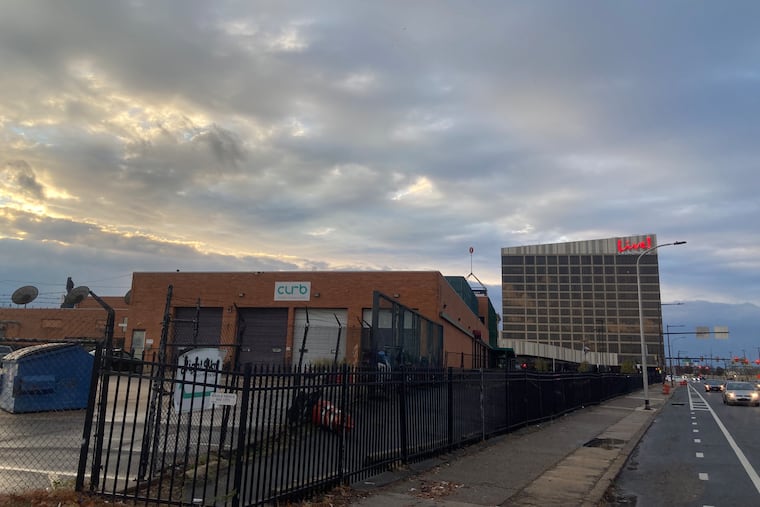Eagles, Phillies, Comcast Spectacor critique Hines mega-development proposal for the stadium district
The proposed project would be an ambitious addition to the sports complex, fundamentally changing its character.

Philadelphia City Council heard concerns Wednesday from an array of powerful interests about a proposed mega-development that would add 1,367 apartments and a large new entertainment complex to South Philadelphia’s stadium area.
Representatives of the Phillies, Eagles, and Comcast Spectacor presented a united front at a hearing about a zoning bill that would enable the project. They said the developer hadn’t shared an detailed impact analysis of the project with them.
The property is owned by Mark Nicoletti’s Philadelphia Suburban Development Corp. (PSDC) and would be developed by Hines, an international real estate company.
This proposal “represents an unprecedented introduction of people, use density, and vehicle circulation impacting the sports stadium district in a new 24/7, year-round property use,” said Michael Harris, vice president of marketing and government affairs for the Philadelphia Phillies.
Harris argued that Hines and PSDC had not done sufficient outreach and negotiation with the teams or other stakeholders like Comcast Spectacor, which owns the Wells Fargo Center and the Philadelphia Flyers.
Harris also noted that the project includes 1,234 parking spaces, fewer than the number of apartments in the project. “Where do employees park? Where are the non-accessory parking spaces for employees and apartment tenant guests?” he asked.
The Sports Complex Special Services District also testified against the bill, and expressed concerns that a traffic study had not \yet been presented for review.
The team representatives requested a 60-day delay of the Rules Committee vote on the bill. But Council members voted unanimously to move the legislation forward.
Earlier this year Comcast Spectacor unveiled its own plans for a giant development to the west of the PSDC site. This larger $2.5 billion housing and entertainment project would transform the area into a bustling residential neighborhood. It was seen by some as a reaction to the Philadelphia 76ers trying to leave the Wells Fargo Center and South Philadelphia for a new arena in Center City.
The Hines project could complement — or compete with — the Comcast proposal.
Council President Kenyatta Johnson, who had legislation introduced to enable the project, asked pointed questions in support of the project. He asked the development team whether anyone else had approached Nicoletti, the landowner, to try to buy the property, noting that he wanted the answer on the record.
“My understanding is that someone did approach Mr. Nicoletti … to purchase his property,” said Hercules Grigos, a zoning lawyer with Klehr Harrison, who represents the development team. “My understanding was it was a representative of Comcast Spectacor.”
Johnson urged the companies to talk with each other and noted that a traffic study that the teams are demanding is forthcoming.
A representative of Hines argued that the project would create “a new neighborhood” in a corner of the city that is barren and lifeless much of the year.
“I’m a father of three daughters who all love Philadelphia sports, but like many young families, I lack options of where to take my kids before and after games, as there isn’t anything family-friendly within the district outside of the walls of the stadiums,” said Brandon Segal, managing director of Hines’ Philadelphia office.
Hines’ proposal has the support of the Veterans Stadium Neighbors Civic Association, the leading neighborhood group in the area.
“The parking really is the primary concern,” said Richard DeMarco, vice president of the civic association. “There’s been promises made, and we do believe the developer will keep those promises to mitigate the parking in our area.”
The bill was amended to clarify a sunset clause in the legislation that would eliminate all the new rules enabling the development if zoning permits are not issued within two years of the bill’s passage.
By the end of the hearing, both sides — at Johnson’s prompting — were making conciliatory statements about future negotiations.
The bill could be passed by the full Council as early as next week.
“We do not oppose new development in the stadium complex area,” said Harris of the Phillies. “We simply urge that developments follow a comprehensive review consistent with the city’s [previous] practices at the sports stadium complex.”